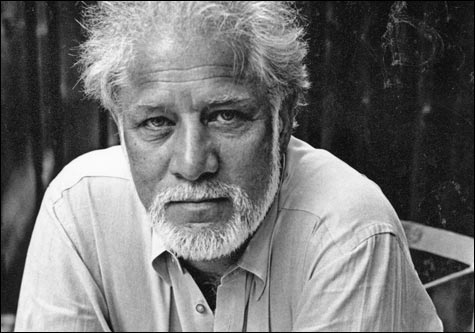
UNEASY PIECES: In Ondaatje’s prose, lives are always fractured narratives. |
Michael Ondaatje builds his new novel, Divisadero, around a triad of characters: “twins” Anna and Claire, who were born concurrently to different mothers who die in childbirth, and adoptee Coop, “the endangered heir of a murder,” the only survivor of a massacre. They’re brought together in childhood on a ranch in 1970s Northern California. When their father discovers an affair between the 16-year-old Anna and the few-years-older Coop, the trio are dispersed in a brutal rending of their makeshift family. The recurring pattern of the novel is established: provisional families, structures, and identities are found or created and then shatter or disappear.
Ondaatje develops the prototype for his composition in the old Gold Rush town of Petaluma. Here lived a “many-headed civilization” of prospectors and the attendant “whisky merchants, poets, heroic dogs, mail-order brides. . . . ” Miners generate boomtowns; these eventually burn, flood, or are abandoned. In this literary terrain, it’s “as if there were a novella by Balzac round every bend.” Ondaatje invokes the French naturalists by name and by allusion. In his great chain of being the angels are Dumas, Stendhal, Flaubert. He even makes room for Colette.

After the family dissolves, the narrative fractures, switches decades, locales, points of view. Coop falls in with a tribe of gamblers. He takes to this new religion of odds, set-ups, and larceny and its accompanying saints, like the “player called The Gentile who had won his future wife in a card game, with a pair of nines.” The role of fate seems manageable when you’ve learned how to stack the deck. But in a high-stakes game in Vegas, while a television silently shows the bombs dropping over Baghdad, Coop’s recklessness precipitates his expulsion from the desert oasis and his new clan.
Anna becomes a scholar and rents the French country house of a minor poet of the Great War, Lucien Segura; there she intends to translate his work. She takes a lover, the Gypsy guitarist Rafael. But, haunted by the past, she remains fragmented, unable to commit herself to even a minor romance. Her father’s violence, she says, was “in retrospect something very small, something that might occur within just a square inch or two of a Brueghel. But it set fire to the rest of my life.”
Only Claire maintains contact with her father. Working with a lawyer in San Francisco, she visits the ranch briefly before taking off on her horse, Territorial. In the hills above her home she is transformed. “Here she was uninterrupted by family life, could be dangerous to herself. . . . ”
The story shifts back in time to Segura, maintaining a ghostly connection with the present. His history is told through his writing, which the war twists from “a complex, finely tuned poetry” into “a blunt, coldly prepared vendetta” chronicling what he witnessed in the military camps and field hospitals. After the war, he writes sentimental tales in which he keeps his lost love and son alive as characters, allowing them and himself “the happiness of a resolution” unavailable outside of fiction.
Ondaatje’s metaphors can feel forced, as when Rafael listens to Bach and hears “the desultory conversations of a wood pigeon.” But the author redeems any stumbles. The pastiche of prose, imagery, and testimony, the temporal leaps that often seemed obstructive in The English Patient — these are less disorienting in Divisadero. Here, Ondaatje’s collage is a splintered mirror that both reflects and dismembers history and memory. He never allows Anna, Claire, and Coop to reconstruct their lives, only to search for new configurations without resolve. “Going after lost things was as uncertain as prayer.”
MICHAEL ONDAATJE | Brookline Booksmith, 279 Harvard St, Brookline | June 4 at 7 pm | 617.566.6660